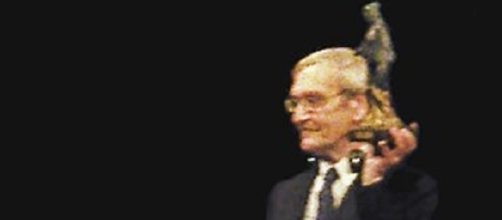Stanislav Petrov, according to sources in Russian media, now being reported widely in the West, died last May. Remarkably that event was not noted at the time and was only known because of Karl Schumacher, a German political activist, found out from Petrov’s son. The man’s passing should have been commemorated on a scale of that of a world leader or a famous philanthropist. The reason for that fact that I am writing this article and you are reading it solely because of an action Petrov undertook one day during the height of the Cold War.
The day the world almost ended
On September 26, 1983, Petrov was a Lt.
Colonel in the Soviet military and the duty officer in the Russian equivalent of NORAD when the alarm sounded that a launch of an ICBM from North America. The computer system that indicated the attack quickly detected five launches, apparently of missiles headed to the Soviet Union.
The standard procedure would have been for Petrov to alert the Soviet high command that the USSR was under attack. Those generals in charge of the Soviet strategic rocket forces would have 90 minutes to launch a retaliatory strike. However, a number of aspects of the alert bothered Lt. Colonel Petrov.
First, why would the Americans just launch five missiles? Would they not use their entire nuclear arsenal if they wanted to take out the Soviet Union?
Petrov was also the only person in the room who had a civilian job, that of a computer expert. He was skeptical about the new Early Warning System. So, the man whose job was to inform the Soviet military leadership that war had broken out instead stated that a computer glitch had occurred. Sure enough, that is what happened.
The computer glitch
As if turned out a rare occurrence of sunlight reflecting off of cloud cover had been interpreted by the computerized early warning system as multiple missile launches. Petrov polled his radar operators, and none detected a launch from American missile silos. The alarm had been false, so Petrov had made the right call.
What happened to Petrov
At first, Petrov was praised for his decision, though he was also criticized for not recording the incident as required by regulations. Then, nothing happened, mainly because the Soviet military had been embarrassed by the bugs in its early warning system, which were corrected by the way by an easy fix. The West was not even aware of what happened until about ten years later, after the fall of the Soviet Union. Petrov received the World Citizen Award twice from a group called the Association of World Citizens and the Dresden Prize by a German group. In the meantime, the Russian government continues to downplay his role in preventing a nuclear war. Petrov himself was unassuming, claiming that he was just doing his job.
Last May a man died in obscurity who deserved a Nobel Peace Prize, speeches of praise by heads of state, a monument to his memory. One man saved the world by thinking clearly and logically. The gentle reader is invited to take that lesson to heart.


